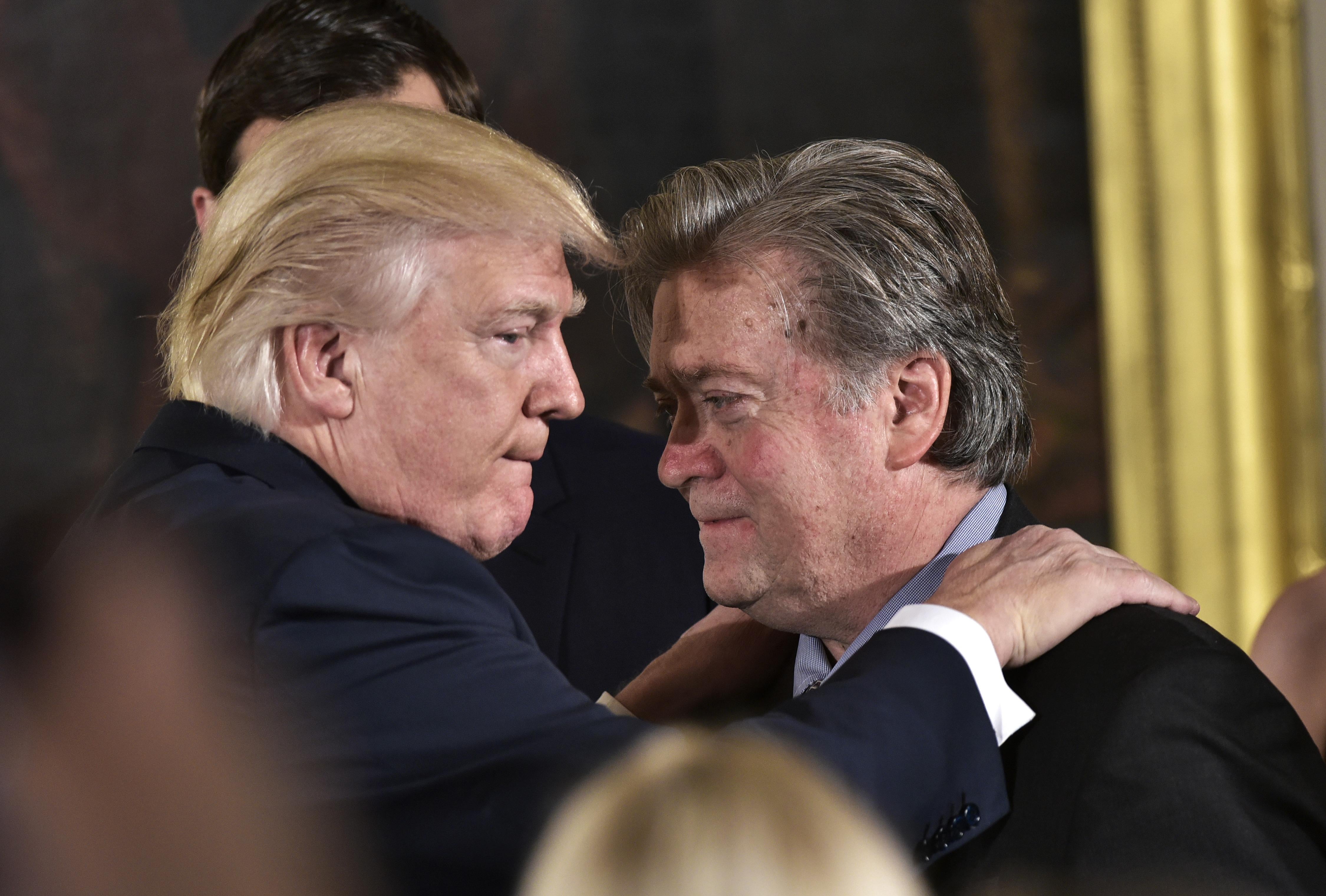Update, 9:00 p.m.: During his campaign-style rally in Nashville Wednesday night, Trump responded to the blocking of his latest executive order calling it “judicial overreach.”
Original Post: A federal judge in Hawaii blocked President’s Trump revised travel ban Wednesday just hours before the White House’s second attempt to restrict entry to refugees and immigrants from six Muslim-majority countries was scheduled to take effect. Federal judges were hearing arguments in three states against the slightly more circumscribed executive order Wednesday—in Maryland, Washington, and Hawaii—but U.S. District Judge Derrick K. Watson in Hawaii was the first to rule, freezing the implementation of the ban nationwide.
The state of Hawaii brought the suit against the White House, alleging, much like the federal court’s ruling in Washington last month, the travel ban was essentially a Muslim Ban lite, and violates individuals’ first amendment rights and the establishment clause, which prohibits the government from making laws targeting a specific religion. Hawaii also argued businesses and universities in the state would be materially hurt by the ban’s impact on their ability to attract top talent; the state also argued the ban would harm its tourism industry.
The broad themes of the second ban, as well as some of the specifics, remained the same as in the first executive order that was issued on Jan. 27, just days into the Trump presidency. Refugees are banned for 120 days; individuals from Sudan, Syria, Iran, Libya, Somalia, and Yemen are barred from entering the U.S. for 90 days. The number of refugees is halved this year by the Trump order from 110,000 to 50,000. Syrian refugees were not specifically targeted in the latest order, Iraq was removed from the list of barred countries, and references to minority religions (i.e. Christians) receiving special treatment were dropped.
In each of the three cases, the Justice Department made a similar argument that it made during the round one of the Trump Muslim Ban—that the president has the executive authority to protect the country’s national security.
